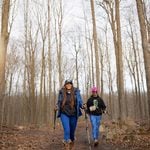This Former Olympian Helps Women and Children Find Their Strength
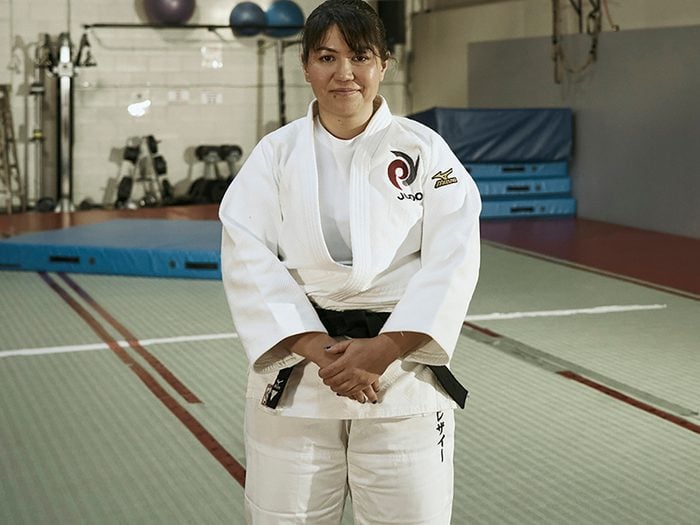
Friba Rezayee teaches judo to women and children in Vancouver. She’s also a relentless advocate for gender equity in Afghanistan, where she was born and raised.
“In Japanese, it’s called ‘ukemi,’ which means ‘break fall,’” says Friba Rezayee, a judo athlete and former Olympian. She’s referring to the practice of learning how to use your arms and upper body strength to protect the rest of your body from impact with the ground. “Judo is a sport where you have to learn how to fall safely—so you fall but don’t get hurt.”
Ukemi might also be the perfect metaphor for Rezayee’s life and work with Afghan refugee women and girls. The 38-year-old gender equity leader and advocate is no stranger to setbacks. She was born and raised in Afghanistan, but when the Taliban came to power in 1996, she and her family were forced to flee to neighbouring Pakistan. When they returned in 2001, her political consciousness had been sparked. She enrolled at an all-girls high school and began learning judo at age 15, choosing the sport because of its combat nature and because martial arts were practiced indoors and in modest clothing.
“I’ve always believed, even as a child, that if you are born, you have the right to exist, to learn, to play sports,” she says. “I believe that human rights and women’s rights are innate, and we should have the right to practice and enjoy them.” In 2004, when Afghanistan was welcomed to the Summer Olympic Games in Ath-ens after being blacklisted during the Taliban regime, Rezayee made history at 18 as one of the first two female Olympic athletes from her home country. “My participation brought Afghanistan back into the world sports arena,” she says. “It was as if a door had been opened for the next generation of women and girls to play sports and participate.”
In 2011, Rezayee immigrated to Canada as a refugee, and a few years later she graduated with a bachelor’s degree in political science from the University of British Columbia. Her eyes and heart remained focused on Afghanistan, though, and in 2021 she incorporated her nonprofit, Women Leaders of Tomorrow, an organization dedicated to securing educational and sports opportunities for Afghan women and girls. “We advocate and work tirelessly,” she says of WLOT’s board, staff and volunteers. Since its inception, the organization has secured 20 scholarships for Afghan women and girls to come to Canada to study and has helped Afghan athletes further their education at home and abroad. Rezayee leads a busy life between her commitments to WLOT, her advocacy work and teaching judo to the next generation, but she’s driven by conviction: “Gender equity matters and that’s what leads me every day.”
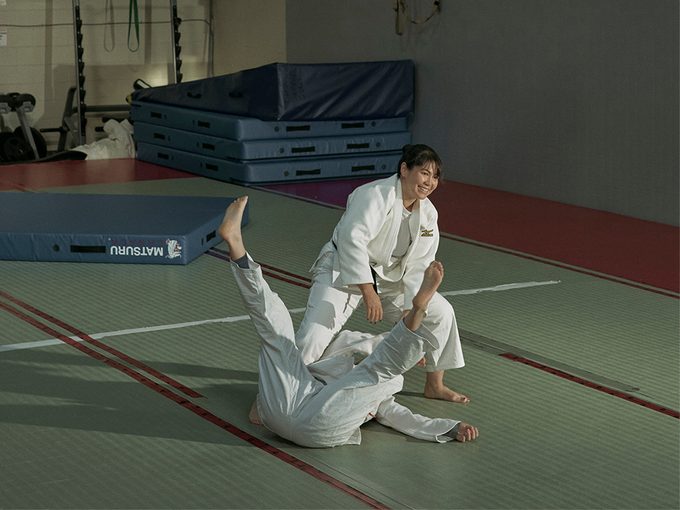
BIG SHOTS Many of the women who come to Rezayee’s classes are interested in judo’s reputation as a combat and self-defence martial art. “Judo is a sport where you can learn how to lift someone up and throw them, even if they’re bigger and heavier than you,” she says. “Women really like that.”
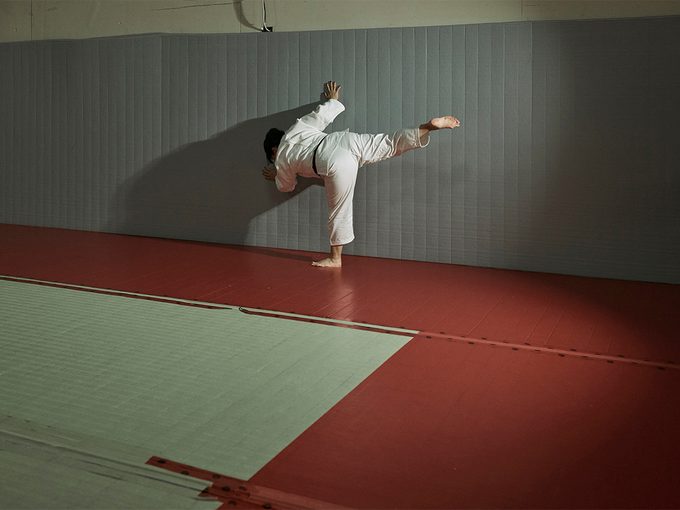
GO STEADY Cross training for judo often means strength exercises, and Rezayee will head to the YMCA most days to weight-train at the gym or take a power yoga class. “I like the breathing style and stretches of power yoga. It helps me with balancing my body, and in judo you have to be able to balance well,” she explains.
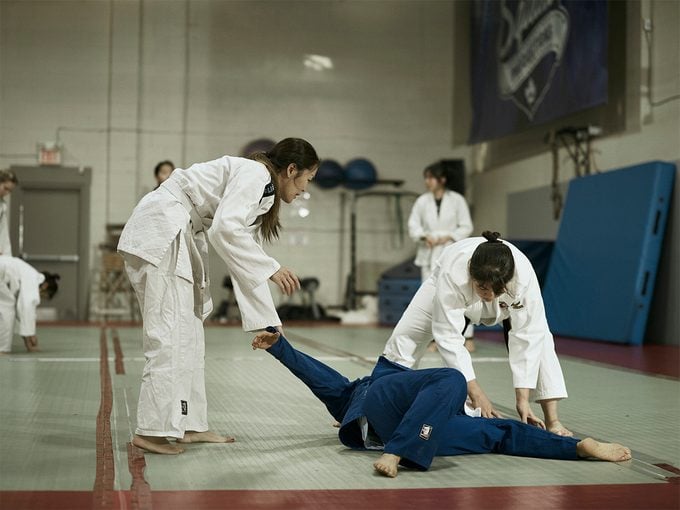
KIDS STUFF Sundays are dedicated to sharing her knowledge of judo with the next generation. On Sunday mornings, she teaches two children’s classes at a local dojo, a highlight of her week: “It’s absolutely a joy and so fun to teach kids. We focus on techniques to help them move their bodies and minds together.”
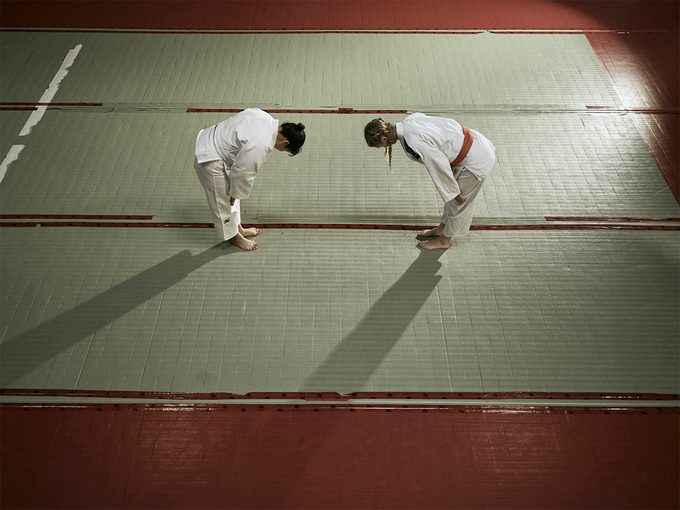
TRUST THE PROCESS Rezayee demonstrates the bow, which begins and ends each judo exercise and is a symbol of respect. The objective of competitive judo is to throw an opponent, immobilize them or force them to submit using contact and impact. Partners are responsible for each other’s safety as they learn and progress.
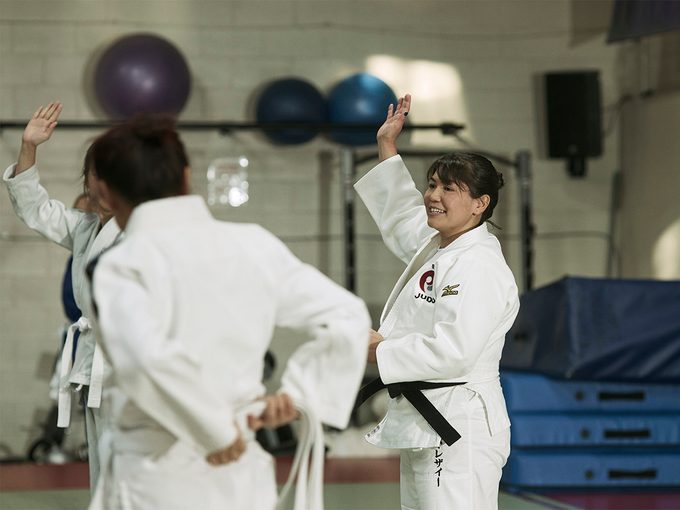
TRICKS OF THE TRADE Alongside her teaching partner, Yuki Yokosawa—another former Olympian—Rezayee leads a drop-in judo class for women. Many of the attendees are beginners, but sometimes yellow-belt or even black-belt students join the class, and often Vancouver Police Department and RCMP members will attend.
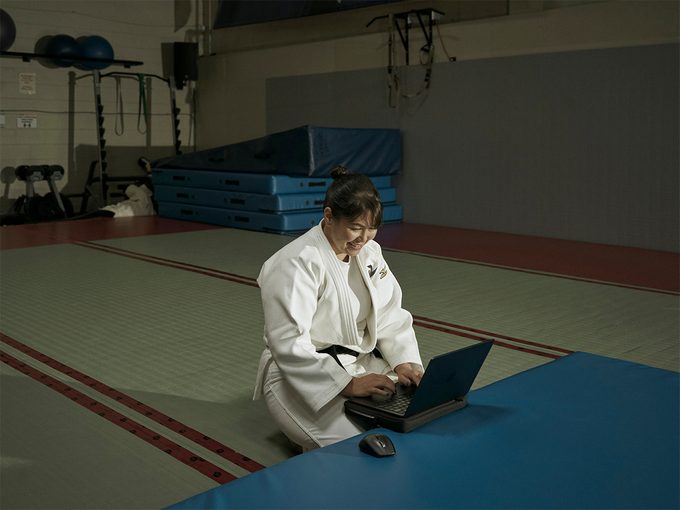
WORK FOR HOME At some point during her day, Rezayee will hunker down on a judo mat for emails and phone calls. Since the Taliban’s return to power in August 2021, she’s fielded international media requests for comments on the situation in Afghanistan and her work with WLOT. “I try to make time for it all,” she says.
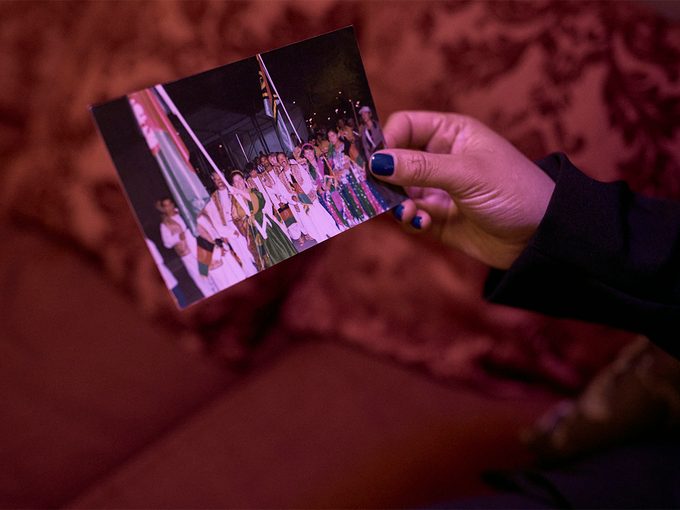
HEAVY MEDALS “Going to the Olympics was the best and worst thing that’s happened to me,” says Rezayee. “It was an honour and a privilege, but it came with its own risks and dangers. To be a pioneer of something is difficult. When you’re the first one, there is a lot of pressure on you. There are many barriers to overcome.”




